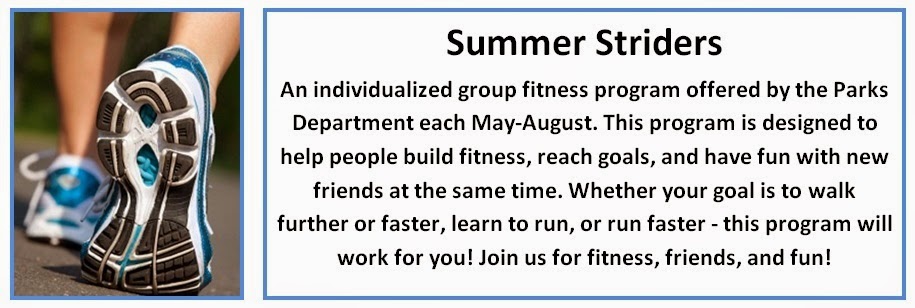Just 6 months of walking may reverse cognitive decline, study says
(CNN)Worried about your aging brain? Getting your heart pumping with something as simple as walking or cycling just three times a week seems to improve thinking skills, new research says. Add a heart-healthy diet, and you maximize the benefits, possibly shaving years off your brain's functional age, according to the study published Wednesday in the journal Neurology.
"Our operating model was that by improving cardiovascular risk, you're also improving neurocognitive functioning," said lead study author James Blumenthal, a clinical psychologist at Duke University. "You're improving brain health at the same time as improving heart health."
Many experts "are already convinced about the benefits of lifestyle interventions to reduce risk of Alzheimer's and cardiovascular dementia," said Dr. Richard Isaacson, who directs the Alzheimer's Prevention Clinic at Weill Cornell Medicine. "But for those who are not, this study is a randomized, clinical trial that illustrates the benefits.
"You can do something today for a better brain tomorrow," said Isaacson, who was not involved in the research.
Diet, exercise or nothing at all
The study was a first, said Blumenthal, who has long studied the effects of diet and exercise on depression and overall cardiac health.
"I don't think there is another study that looked at the separate and combined effects of exercise and diet in slowing cognitive decline in patients who are vulnerable to develop dementia in later life," he said.
The study enrolled 160 adults who had high blood pressure or other risks for cardiovascular disease, who never exercised and who had verified cognitive concerns such as difficulty making decisions, remembering or concentrating. Participants were an average age of 65, two-thirds female and equally divided between whites and minorities. Anyone diagnosed with dementia or unable to exercise was excluded.
Researchers randomly divided participants into four groups for the six-month study. One group started the DASH diet, short for Dietary Approaches to Stop Hypertension. DASH is a widely respected heart-healthy diet that cuts salt, fatty foods and sweets while emphasizing vegetables, fruits and whole grains. This group received nutritional guidance on how to stick to the diet but was not encouraged to change their couch-potato habits.
A second group exercised but was not encouraged to diet. For the first three months, this group was supervised at a cardiac rehab facility where they did non-strenuous exercise three times a week: They warmed up for 10 minutes and then did 35 minutes of continuous walking or stationary cycling. During the last three months of the study, this group exercised at home, filling out compliance logs that were monitored by research staff.
The third group did both: They exercised three times a week and followed the DASH diet. The fourth group received only advice on reducing their cardiovascular risk during a 30-minute call with a health educator but was told not to change their diet and exercise habits.
Before starting their assigned path, participants underwent a battery of cognitive tests, a treadmill stress assessment and a dietary analysis. In addition, their blood pressure, blood sugar and lipids were recorded. The tests were repeated at the conclusion of the study.
Change in only six months
The group who only exercised saw significantly greater improvements in their executive functioning skills than the group who did no exercise.
"The results showed that controlled aerobic activity within a very short period of time can have a significant impact on the part of the brain that keeps people taking care of themselves, paying their bills and the like," Isaacson said. "Not only can you improve, but you can improve within six months!"
Blumenthal noted, "Remember, these are older adults who are completely sedentary and have verified cognitive impairments. We had no dropouts, and everyone was able to sustain the exercise program and do it on their own. That was great."
The group who followed the DASH diet with no exercise didn't show a statistically significant improvement in thinking skills, but both Blumenthal and Iscaason stressed that they only missed it by a small margin.
"I would be cautious in saying diet didn't help, because I believe it likely did," Isaacson said. "While the brain sits in a separate compartment, it's still part of the body, so everything that affects body will also affect the brain."
However, it was the group who combined exercise and the DASH diet who saw the greatest benefit. This group averaged nearly 47 points on the overall tests of executive thinking skills, compared with 42 points for those who only exercised and about 38 points for those who were told not to change their diet and exercise habits.
In fact, the group that both dieted and exercised reversed their brain's aging by nine years.
But after just six months of exercising and following the DASH diet, their executive function improved by nine years, bringing their mental age down to 84.
The control group's executive function declined by six months, or the length of the trial, which was to be expected with no interventions, Blumenthal said.
No improvement in memory
Unfortunately, there was no improvement in memory for any of the groups. That's not surprising, Isaacson said.
"We can positively improve executive function with lifestyle interventions more quickly, but memory takes longer to respond," he said. "It could be that if this study had continued for 18 months or used a different type of brain diet, memory too would have improved."
What's needed now, Isaacson added, are additional studies: "If we could get multiple centers together to do multisite studies, we will learn more."
Because those who combined diet and exercise saw the greatest improvements, it may be that multiple lifestyle changes, not just diet and exercise, are needed to maximize success, Blumenthal said.
What's important, he said, is that "adopting a healthy lifestyle can improve your risk, improve neurocognitive functioning, and it's not too late to start. Even in older people with some indication that their brains are compromised, they also benefit as well."
original source: https://www.cnn.com/2018/12/19/health/reverse-cognitive-aging-exercise-diet-study/index.html



